When your kitchen sink smells bad, it can be a real annoyance. Not only is it unpleasant to smell, but it can also be a sign of bacteria growth. If you’re wondering why your kitchen sink smells and how to fix it, read on! This article will discuss common causes of bad kitchen sink smells – and how to get rid of them for good!
Why Does My Sink Smell?
If there are no visible clogs present but you still notice an unpleasant smell coming from your sink area, you may have a buildup of bacteria. This is usually caused by leaving old food and debris in the sink, which can create an ideal environment for bacteria to thrive. To prevent future issues, make sure you clean out your sink regularly with soap and hot water. Additionally, using a mixture of bleach and water could help kill any lingering bacteria or mold.
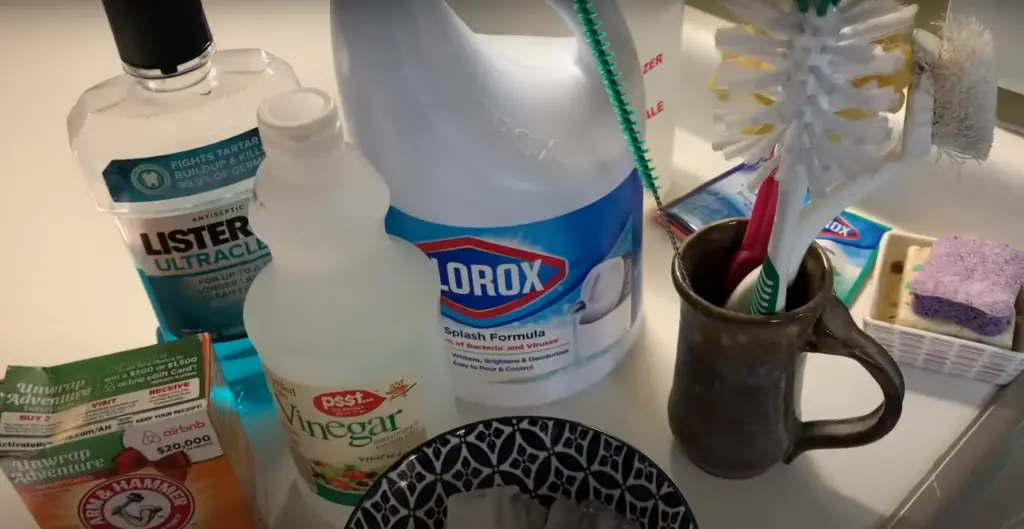
Finally, if your sink’s smell persists no matter what you do, it may be time to call a professional plumber to inspect the pipe system for further blockages or damage. A plumbing issue may require deeper cleaning or repair work that can only be done by an expert. Taking care of this problem promptly will not only keep your sink smelling fresh but also protect the health of your family.
As such, if you’ve been dealing with a foul-smelling sink for an extended amount of time, it’s important to take the necessary steps to identify and address the issue before it gets worse. Doing so can help ensure that your sink stays clean and odor-free for years to come [1].
How To Stop Your Sink Smelling?
Boiling Water
The simplest and oldest method of getting rid of a smelly sink is to simply boil some water in it. Boiling water will help kill off any bacteria which may be causing the smell, as well as any other organic matter that has been left behind.
To perform this method, fill your sink with enough water so that it covers the drain area completely. Then bring the water to a rolling boil for several minutes before draining it out. This will help remove any odor-causing particles from your sink and keep it smelling fresh for longer.
Baking Soda & Vinegar Solution
Another tried-and-true method for removing odors from sinks is to mix equal parts baking soda and white vinegar in a cup or bowl. Once mixed, pour the solution directly down the drain and let it sit for about 15 minutes before flushing with hot water. The combination of baking soda and vinegar helps to break down any organic matter that may be causing the smell and leaves your sink smelling fresh and clean.
Lemon Juice & Water Solution
Bleach Solution
Try using a bleach solution to get rid of any smell coming from your sink. To make the solution, mix one-part bleach with ten parts water in a cup or bowl. Then pour the mixture directly into the drain area and let it sit for 10 minutes before flushing it with hot water. The chlorine in the bleach helps to kill off any bacteria that may be causing the smell and leaves your sink smelling clean and fresh.
Plunger
If you still can’t get rid of the smell coming from your sink, then you may need to use a plunger. A plunger is an effective tool for removing any clogs or blockages that may be causing the smell. To perform this method, fill your sink with enough water so that it covers the drain area completely, and then use a plunger to try and dislodge any clog or buildup. Keep plunging until the clog has been removed before flushing the sink with hot water.
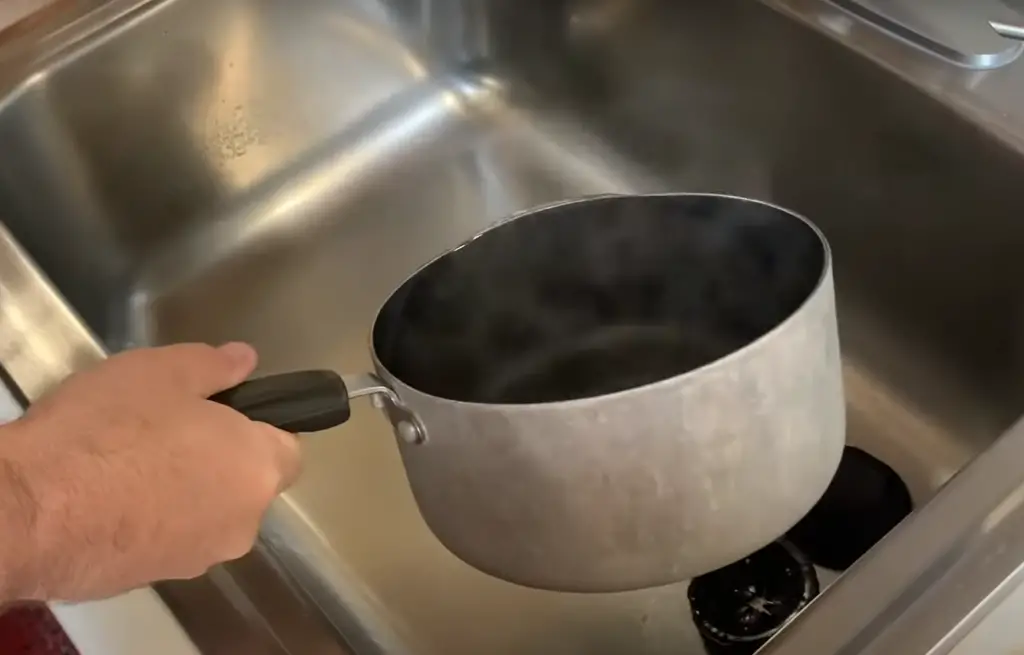
Check The U Bend
The U-bend is the curved pipe underneath your sink and it can sometimes get clogged with bits of food or other organic matter, which can cause an unpleasant smell. To check it, disconnect the pipes from the U-bend and then inspect them for any blockages. If you find any debris or buildup in there, then use a wire brush to clean it out before reattaching the pipes.
Call A Professional
If none of these methods work and you are still struggling to get rid of the odor coming from your sink, then it may be time to call a professional plumber. A plumber will be able to take a look at your plumbing system and identify exactly what is causing the smell and provide you with the right solution to get rid of it [2].
Preventing a Smelly Sink
To prevent a smelly sink, there are several simple tips you can follow:
- Clean it regularly: The best way to keep a sink smelling fresh is to clean it frequently and thoroughly. Use a good quality cleaner or natural solution like vinegar and baking soda, scrub the sink with a sponge or cloth, and rinse well;
- Dispose of food scraps properly: Don’t let food particles linger in the drain or disposal system as they can quickly start to smell bad. Always dispose of food scraps by placing them in an airtight container before throwing them away;
- Run hot water down the drain: Hot water helps dissolve any lingering food particles that may be stuck in your pipes and can help reduce odors from coming up through the drain;
- Install an air freshener: Consider adding a small air freshener to the sink area to keep it smelling fresh;
- Use a drain strainer: Installing a strainer in your sink will help trap any food particles before they get into your drain and create odors;
- Keep the countertop clean: Make sure to wipe down the counters surrounding the sink regularly, as dirt and grime can cause an unpleasant smell;
- Try baking soda and vinegar: Mix equal parts of baking soda and white vinegar and pour down the drain for a natural odor-eliminating solution;
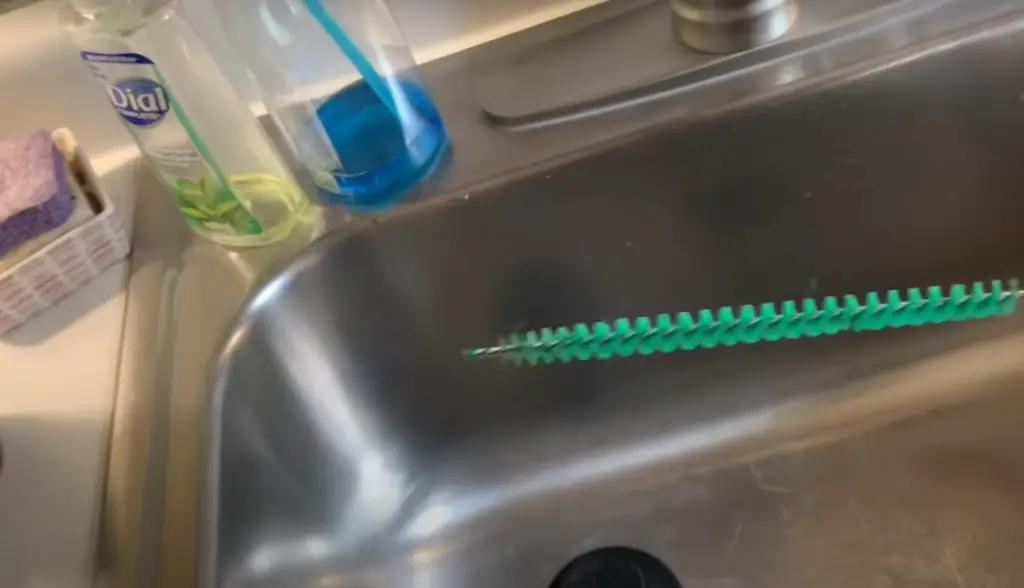
3 Tricks for Stopping Smell in a Kitchen Sink If You Have a Garbage Disposal
1. Hot water and dish soap
The best way to prevent bad smells from coming from your kitchen sink is to use hot water and dish soap. The combination of the two will help to keep food particles from building up in the pipes, which can cause odors. Simply run hot water with a few squirts of dish soap down the drain for 15-20 seconds every week or so.
2. Ice cubes, coarse salt, and lemon peels
Another simple way to help keep your kitchen sink smelling fresh is to use ice cubes, coarse salt, and lemon peels. Start by running some hot water down the drain then add a handful of ice cubes, a quarter cup of coarse salt, and three or four lemon peels. Let this mixture sit for 15-20 minutes before flushing it with hot water.
3. Vinegar and lemon ice cubes
If you want to try another trick, you can make some vinegar and lemon ice cubes. Start by mixing equal parts white vinegar and water in a bowl. Then cut some lemons into slices and add them to the mixture. Fill an ice cube tray with the liquid and freeze. Once frozen, drop one of the cubes down your kitchen sink once a week or so to help keep it smelling fresh.
It’s also a good idea to practice regular maintenance on your kitchen sink – such as cleaning out any food particles that may have gotten stuck in the pipes or using a drain cover to catch anything before it goes down the drain. Doing these simple tasks can go a long way toward preventing odors from coming out of your kitchen sink [3].
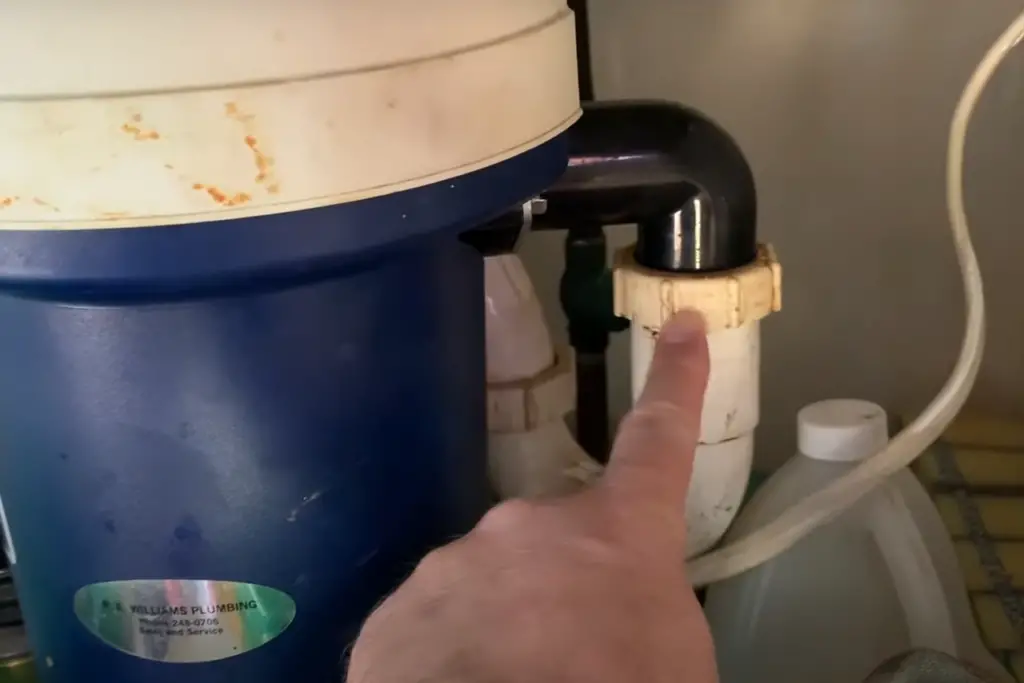
Understanding Kitchen Sink Odors
If you’re experiencing unpleasant odors from your kitchen sink, it’s important to identify the cause and address it. Here’s a comparison of common reasons for kitchen sink odors, precautions to take, and methods to eliminate them.
| Common Causes | Precautions | Elimination Methods |
|---|---|---|
| Food debris and grease buildup | Avoid dumping food scraps down the drain and use drain guards. | Regularly clean the drain and use a mixture of baking soda and vinegar. |
| Blocked or clogged pipes | Avoid flushing non-flushable items down the sink, like coffee grounds or paper towels. | Use a plunger, plumber’s snake, or chemical drain cleaner to clear clogs. |
| Sewer or gas line issues | Contact a professional plumber if you suspect sewer or gas line problems. | Address any sewer or gas line issues promptly with the help of a plumber. |
| Stagnant water in the P-trap | Run water regularly to prevent the water in the P-trap from evaporating. | Pour water down the drain to refill the P-trap and block sewer gas odors. |
Explanation of the table:
This table provides a comparison of common causes of kitchen sink odors, precautions to take, and elimination methods. It covers issues like food debris and grease buildup, blocked pipes, sewer or gas line problems, and stagnant water in the P-trap. By understanding the causes, taking necessary precautions, and using the provided elimination methods, you can eliminate unpleasant odors from your kitchen sink.
FAQ
How do I get rid of a bad smell in my kitchen sink?
There are several solutions to this problem, depending on what is causing the bad smell. If it’s a buildup of food scraps or grease, you can try pouring boiling water down the drain or using a mixture of baking soda and vinegar. You could also use an enzyme drain cleaner, which helps break down organic matter that may be clogging your pipes and contributing to the odor. If there’s an underlying plumbing issue such as a leak or clog, contact a professional plumber for assistance. This will help prevent further damage and keep the bad smell from coming back.
Why do my sinks smell like sewer?
A foul sewer smell in your sinks is usually caused by a blockage or leak in the pipes. This can cause drainage to back up, resulting in smelly gasses from the sewer entering your home. If you notice this odor, it’s important to call a professional plumber to inspect and repair any issues to prevent further damage. Additionally, regularly pouring boiling water down your drains will help keep them clean and free of clogs that could lead to bad smells.
How do I get rid of grease buildup in my kitchen sink?
Grease can be difficult to remove once it has built up, but there are several solutions you can try at home. Start by using a mixture of hot water, baking soda, and vinegar to help break down the grease and flush it away. If that doesn’t work, you can use a commercial drain cleaner or enzyme drain cleaner, which helps break down organic matter in the pipes. Additionally, regularly pouring boiling water down the sink can help prevent grease buildup in the future.
How do I unclog my kitchen sink?
If your sink is clogged due to a buildup of food scraps or hair, there are several solutions you can try at home. Start by using a plunger to try and dislodge whatever may be causing the blockage. If that doesn’t work, you can also use a mixture of baking soda and vinegar as an all-natural cleaning solution. If these solutions fail, you may need to contact a professional plumber for assistance.
How often should I clean my kitchen sink?
It’s recommended to give your kitchen sink a deep cleaning at least once a month. This will help prevent the buildup of food scraps and grease that can lead to bad odors and clogged drains. Additionally, regularly pouring boiling water down the drain can also help break down any organic matter that may be contributing to blockages or smells.
What is causing an offensive odor coming from my bathroom sink?
There are several potential causes for an offensive odor coming from your bathroom sink, including bacteria growth due to food scraps or other organic matter getting stuck in the pipes, a buildup of soap scum or mold, or an underlying plumbing issue. It’s important to inspect your sink and pipes for any blockages or cracks that could be causing leaks. Additionally, regularly pouring boiling water down the drain can help break down debris and prevent future odors. If you suspect there is an underlying plumbing problem, contact a professional plumber for assistance.
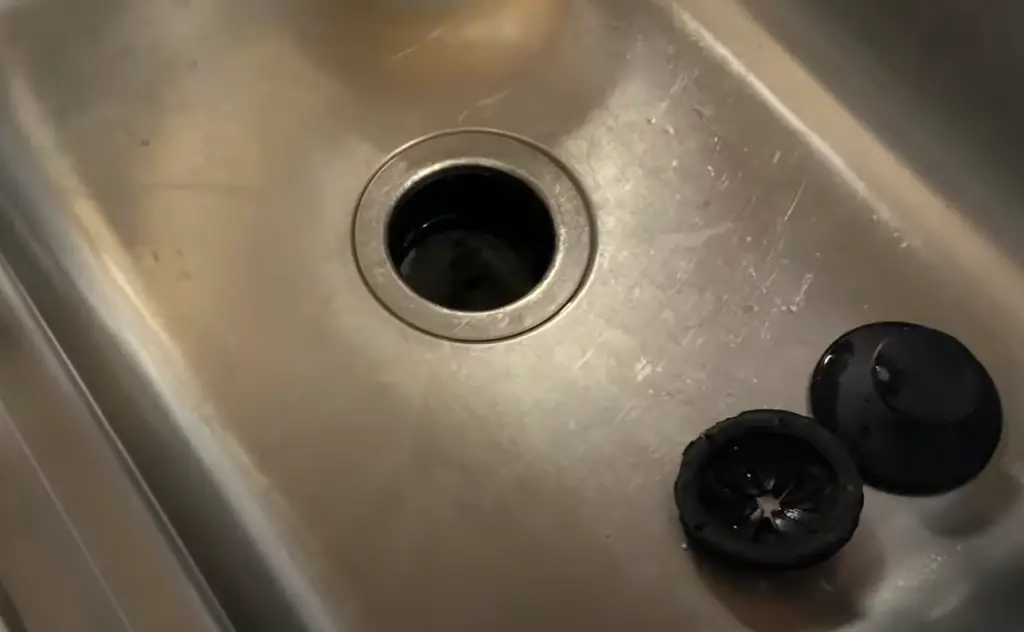
How do I get rid of the smell in my sink pipes?
The best way to get rid of the smell in your sink pipes is by using a commercial enzyme drain cleaner. Enzymes are naturally occurring bacteria that break down organic matter, helping to flush away any debris that may be contributing to odors or clogs. Additionally, regularly pouring boiling water down the sink will help keep the pipes clean and prevent future buildup. If you suspect there’s an underlying plumbing issue such as a leak or crack, contact a professional plumber for assistance.
Can a plumber fix a smelly drain?
Yes, a plumber can fix a smelly drain. They will inspect your sink and pipes for any blockages or leaks that could be causing odors and repair them as needed. Additionally, they can provide advice on how to keep your drains clean and odor-free in the future. If you’re experiencing ongoing smells from your drains, it’s best to call a professional plumber for assistance.
Can you pour bleach down a smelly drain?
No, it is not recommended to pour bleach down a smelly drain. Bleach can be corrosive and can damage your pipes over time. Additionally, it will not get rid of the underlying cause of the smell and could even make it worse by masking the odor temporarily. It’s best to contact a professional plumber for advice on how to effectively get rid of any odors or blockages in your sink or pipes.
What should I do if I have a leaky kitchen sink?
If you have a leaky kitchen sink, it’s important to address the issue as soon as possible to prevent further damage. Start by inspecting the sink for any visible cracks or blockages that could be causing the leak. If necessary, you can use a mixture of baking soda and vinegar to dissolve any stubborn debris that could be contributing to the problem. If these solutions fail, it’s best to contact a professional plumber for assistance.
What are the common causes of a foul odor coming from my kitchen sink?
Common causes of a foul odor from your kitchen sink include food debris buildup, rotting organic matter, grease accumulation, clogged drainpipes, and a dry or malfunctioning P-trap.
How can I prevent kitchen sink odors from developing in the first place?
To prevent kitchen sink odors, you can:
– Avoid disposing of food scraps down the drain.
– Use a drain strainer to catch food particles.
– Run hot water and dish soap down the drain regularly.
– Clean the garbage disposal and drainpipes.
– Ensure the P-trap retains water to block sewer gases.
Why does my kitchen sink smell like rotten eggs, and how can I eliminate this odor?
A rotten egg smell in the kitchen sink can be caused by hydrogen sulfide gas. To eliminate this odor, try pouring baking soda and vinegar down the drain, followed by hot water. If the issue persists, check for a malfunctioning anode rod in your water heater or call a plumber for assistance.
What should I do if my kitchen sink smells like sewage, and how can I fix it?
If your kitchen sink smells like sewage, it could indicate a problem with the sewer line or a dry P-trap. To fix it, try running water in all sinks to fill the P-traps, and if the smell persists, contact a professional plumber to inspect and resolve any issues with the sewer line.
Can the type of food I dispose of in my kitchen sink affect the odors coming from it, and how can I manage this?
Yes, the type of food you dispose of can affect sink odors. Avoid putting strong-smelling or rotting foods down the disposal. Instead, use a compost bin for food scraps, clean the disposal regularly, and maintain proper drainage to manage odors.
Useful Video: Deodorize a Kitchen Sink that Smells (5 WAYS!)
Conclusion
If your kitchen sink smells not pleasant or even has an awful odor, it likely means that something is not right. It could be caused by food waste, mildew, or even a broken drain pipe. Fortunately, there are solutions to many of these problems that can help you eliminate the foul smell and keep your kitchen sink smelling fresh and clean! By following the steps outlined in this article, you can take control of your kitchen sink odor and make sure it never becomes a problem again. With just a few simple tools and some basic plumbing knowledge, you can get your kitchen sink back to smelling great in no time!
References:
- https://trusteyman.com/blog/why-does-my-sink-drain-smell/
- https://www.tapwarehouse.com/blog/how-to-guides/smelly-kitchen-sink
- https://www.rubensteinsupply.com/10-ways-to-get-rid-of-that-awful-smell-in-your-kitchen-sink/

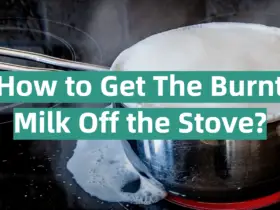



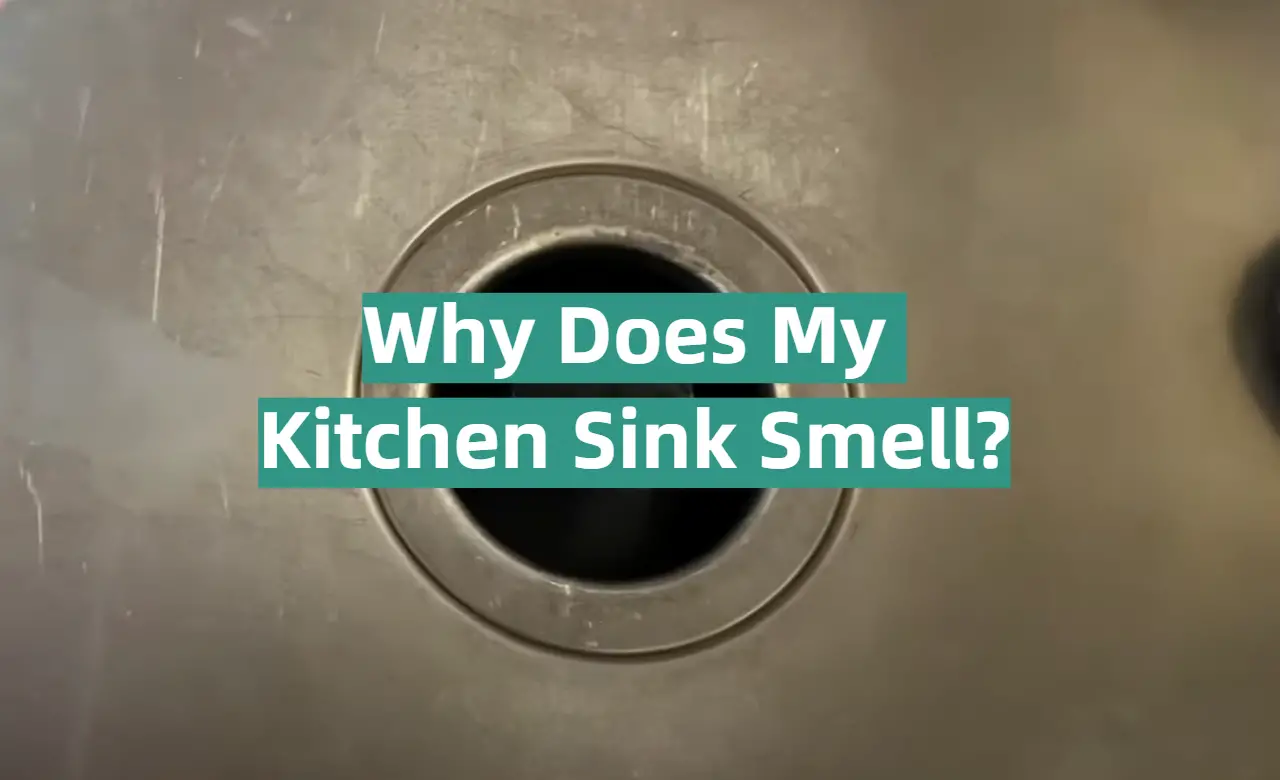
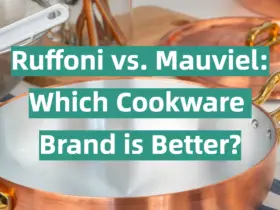
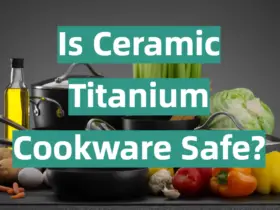




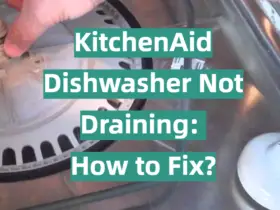
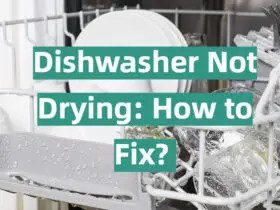
Leave a Reply